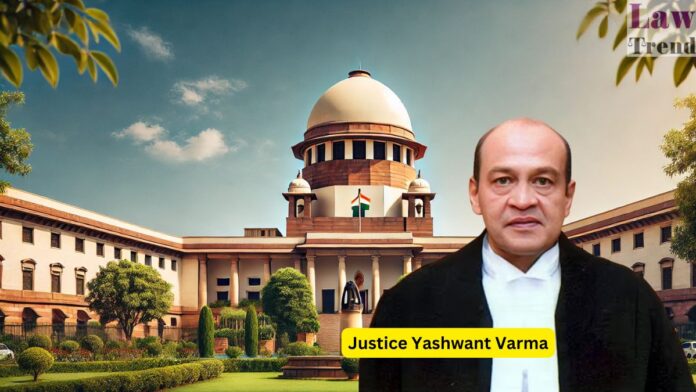The Supreme Court has reserved its verdict in the writ petition filed by Justice Yashwant Varma, a sitting High Court judge, challenging the findings of a confidential report prepared by an in-house inquiry panel. The panel had found “strong inferential evidence” linking the judge to a large quantity of charred currency discovered at his official residence following a fire in March.
Background
The case arises from a fire incident at Justice Varma’s government-allotted residence in Delhi in March. After the fire was doused and the premises cleared, authorities found a burnt suitcase containing a significant volume of charred currency notes.
Following this, the then Chief Justice of India constituted a three-member in-house inquiry panel of senior Supreme Court judges under the judiciary’s internal procedure. The panel was tasked with examining the origin of the cash and any possible link to Justice Varma.
After reviewing documents and witness testimonies, the panel submitted a confidential report to the Chief Justice. While the report did not rely on direct evidence, it concluded that there was “strong circumstantial evidence” suggesting Justice Varma’s “covert or active control” over the recovered currency. Media reports about the findings led Justice Varma to move the Supreme Court, alleging procedural impropriety and reputational harm.
Justice Varma’s Arguments
Appearing through senior counsel, Justice Varma challenged the inquiry on several grounds, arguing that it was riddled with procedural flaws and violated principles of natural justice. His key submissions included:
- The panel’s findings were not backed by concrete evidence but rested on speculation and inference.
- An unacceptably low standard of proof was applied, despite the serious implications for his reputation.
- He had no knowledge of the suitcase or the cash and was denied the opportunity to present an explanation.
- The term “strong inferential evidence” was vague and legally inadequate to support grave conclusions.
- The internal inquiry lacked the procedural safeguards of a formal disciplinary or judicial process.
- The leak of the confidential report to the media caused irreversible damage to his public image.
Supreme Court’s Concerns
A bench comprising Justices Dipankar Datta, A.G. Masih, and one other examined the constitutional and procedural dimensions of in-house judicial inquiries. The Court posed several important questions:
- Can internal inquiry reports be subject to judicial review under Article 32 of the Constitution?
- What is the evidentiary standard required in an internal probe against a sitting judge?
- Does a fact-finding panel have the jurisdiction to issue findings that imply culpability?
- What safeguards should be in place to prevent leakage of confidential reports?
The bench noted that while judicial independence is paramount, mechanisms for accountability must also function effectively. It expressed concern over the media leak, observing that such breaches damage the integrity of the process and public confidence in the judiciary.
After hearing detailed arguments from both sides, the Supreme Court reserved its verdict.




